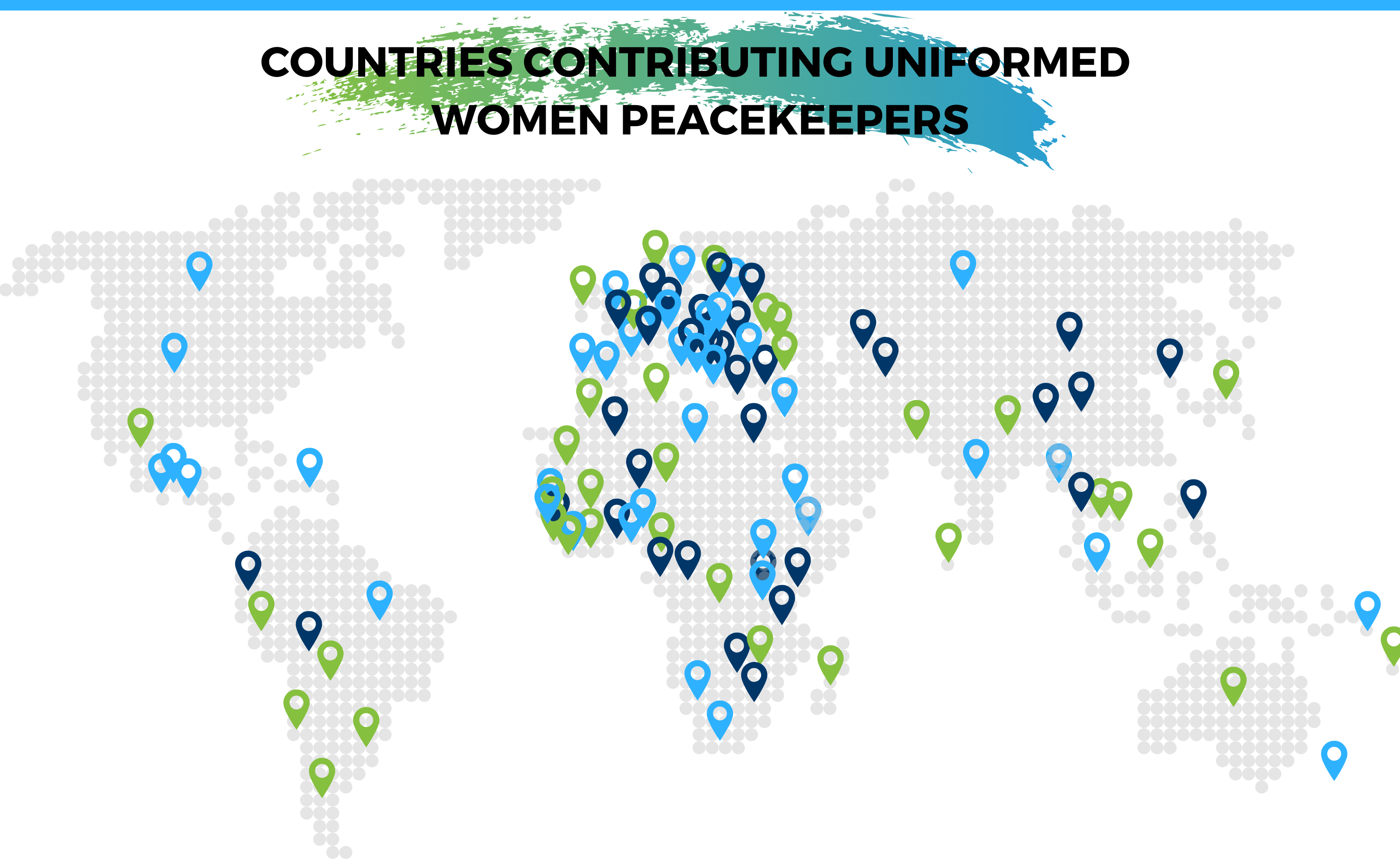As we commemorate the 20th anniversary of Security Council Resolution 1325 on Women, Peace and Security, we must do more to achieve women’s equal representation in all areas of peace and security. Together, let us continue to wage peace, defeat the pandemic and build a better future.
UN Secretary-General António Guterres
2020 Theme: Women in Peacekeeping: A Key to Peace
The International Day of United Nations Peacekeepers, 29 May, offers a chance to pay tribute to the uniformed and civilian personnel’s invaluable contribution to the work of the Organization and to honour more than 3,900 peacekeepers who have lost their lives serving under the UN flag since 1948, including 102 last year.
This year, the challenges and threats faced by our peacekeepers are even greater than ever, as they, like people around the world, are not only having to cope with the COVID-19 pandemic, but also support and protect the people in the countries they are based in. They are continuing their operations to the best of their abilities and supporting the governments and the local populations, despite the risk of COVID-19.
The theme for this year’s Day is “Women in Peacekeeping: A Key to Peace” to help mark the 20th anniversary of the adoption of UN Security Council Resolution 1325 on Women, Peace and Security.

Through UNSCR 1325, ensuing resolutions, as well as the Action for Peacekeeping (A4P) Declaration of Shared Commitments, the UN has called for an expansion of the role and contribution of women in its operations, including of uniformed peacekeepers.
Women peacekeepers make invaluable contributions to peacekeeping. They help improve overall peacekeeping performance, have greater access to communities, especially to women, and therefore, help in promoting human rights and protection of civilians. They also encourage women to become a meaningful part of peace and political processes; when diverse women participate in peace negotiations, the quality and durability of peace agreements increases, and when women are signatories of peace agreements, they are more likely to be implemented, which academic research shows helps to ensure sustainable peace and prosperity.
The first UN peacekeeping mission was established on 29 May 1948, when the Security Council authorized the deployment of a small number of UN military observers to the Middle East to form the United Nations Truce Supervision Organization (UNTSO) to monitor the Armistice Agreement between Israel and its Arab neighbors.
Since then, more than 1 million women and men have served in 72 UN peacekeeping operations, directly impacting the lives of millions of people and saving countless lives. Today, UN Peacekeeping deploys more than 95,000 military, police and civilian personnel in 13 operations.
To mark the Day at the UN Headquarters in New York, the Secretary-General will lay a wreath in honour of all peacekeepers, who have lost their lives while serving under the UN flag over the past seven decades. And a virtual ceremony will be held at which the Dag Hammarskjold medal will be awarded posthumously to peacekeepers who lost their lives in 2019. The Peacekeeping Gender Advocate of the Year award will also be presented at the virtual ceremony.






